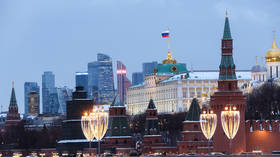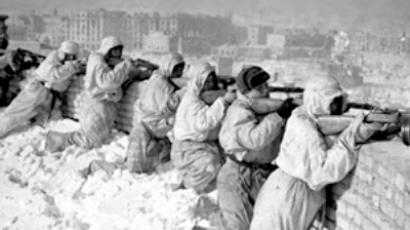Lincoln and Alexander II – the two liberators
On Thursday, the U.S. celebrates its 200th birthday of President Abraham Lincoln, known for abolishing slavery in the country. Halfway across the globe Russian Tsar Alexander II also dreamt of freedom for the serfs.
Despite the distance between the American and Russian leaders, not to mention their drastic cultural differences (Lincoln was born in a log cabin in Kentucky, whereas Tsar Alexander was born into an imperial family), the two corresponded with each other, sharing their thoughts and experiences.
“It was mainly correspondence between ministers. First of all, naval ministries of Russia and naval ministries in the U.S.,” Dr. Aleksandr Petrov from Insitute of World History said.
The relationship sometimes went beyond mere correspondence. Russia, for example, sent naval ships to the U.S. to help Lincoln keep his country together.
“Russia stepped forward and helped the Union – not the confederate army, not France, and not Great Britain, but really helped Abraham Lincoln to save the Union,” Aleksandr Petrov said.
While Lincoln was about to witness a civil war that would tear the country in two, Tsar Alexander II proclaimed his Manifesto liberating 20 million serfs.
“Alexander II really believed in a free world, because Russia just abolished serfdom in 1861 and two years after that Lincoln made his famous speech – The Gettysburg address,” Aleksandr Petrov said.
“Fourscore and seven years ago our fathers brought forth on this continent a new nation, conceived in liberty and dedicated to the proposition that all men are created equal. Now we are engaged in a great civil war, testing whether that nation or any nation so conceived and so dedicated, can long endure,” the address said.
It was a long hard war fought to keep a nation together but to also ensure all men were free and could have basic rights like to learn to read and write.
Back then John W. Fields remembered his thirst for knowledge as a slave.
“In most of us coloured folks was the great desire to [be] able to read and write. We took advantage of every opportunity to educate ourselves. The greater part of the plantation owners were very harsh if we were caught trying to learn or write. It was the law that if a white man was caught trying to educate a negro slave, he was liable to prosecution,” he said in an interview in 1937.
Serfs in Russia were also uneducated, but some like Praskovia Kovalyova-Zhemchugova were an exception. She became Count Nikolai Sheremetev’s mistress then and then wife, but their relationship was kept secret. In 1798 Sheremetev emancipated his wife, 63 years before Alexander II would abolish serfdom.
It was one of the most important legislative acts in Russian history as the abolishment of slavery would be in the United States.
Both men vowed to liberate and did, and both were tragically assassinated.













